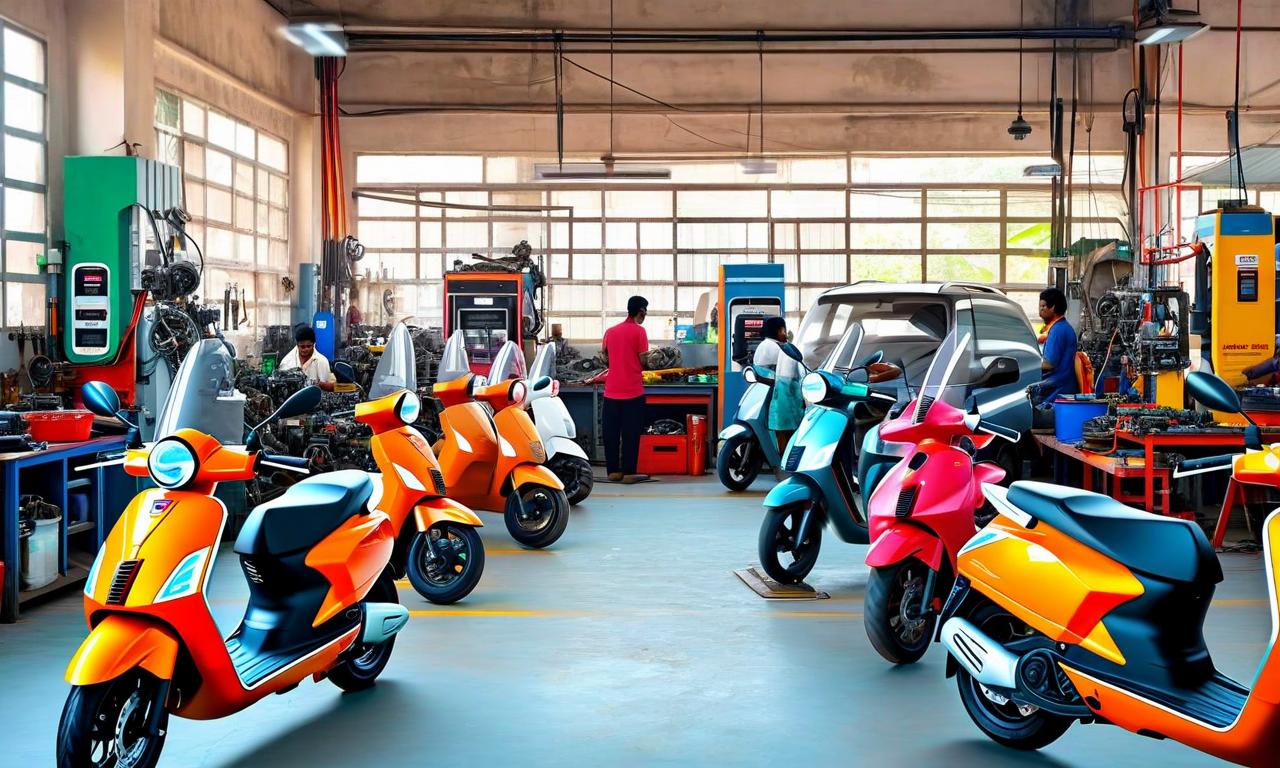Vehicle Scrapping Initiative Could Generate ₹40,000 Crore in GST, Create 70 Lakh Jobs: Gadkari
Union Minister Nitin Gadkari unveiled projections for India's vehicle scrapping program. Scrapping 97 lakh unfit vehicles could generate ₹40,000 crore in GST revenue and create 70 lakh jobs. By August, 3 lakh vehicles were scrapped, with 16,830 vehicles being scrapped monthly. The private sector invested ₹2,700 crore in the program. Gadkari urged automakers to offer a 5% discount for scrappage certificates, potentially reducing component costs by 25%. He projected India's ₹22 lakh crore auto industry to become a global leader within five years. The government also proposed 27% ethanol blending in petrol to reduce fossil fuel imports.

*this image is generated using AI for illustrative purposes only.
Union Minister Nitin Gadkari has unveiled ambitious projections for India's vehicle scrapping program, highlighting its potential to boost the economy and create jobs while addressing environmental concerns.
GST Revenue and Job Creation
Gadkari announced that scrapping approximately 97 lakh unfit and polluting vehicles could generate a substantial ₹40,000 crore in GST revenue for both the Centre and states. This initiative is also expected to create an impressive 70 lakh jobs, providing a significant boost to employment in the country.
Progress of the Voluntary Vehicle Fleet Modernization Program
The minister provided an update on the Voluntary Vehicle Fleet Modernization Program:
- 3 lakh vehicles have been scrapped by August
- 1.41 lakh of these were government vehicles
- Currently, 16,830 vehicles are being scrapped monthly
- The private sector has invested ₹2,700 crore in the program
Incentives for the Automobile Industry
Gadkari urged the automobile industry to offer a minimum 5% discount for scrappage certificates. He emphasized that successful implementation of the policy could lead to a 25% reduction in automobile component costs, benefiting both manufacturers and consumers.
India's Automotive Sector Growth
The minister expressed confidence in the growth potential of India's automobile industry:
- Current valuation: ₹22 lakh crore
- Projection: To become the global leader within five years
Ethanol Blending Initiative
Gadkari also touched upon the government's ethanol blending initiatives:
- India currently spends ₹22 lakh crore annually on fossil fuel imports
- The government has proposed 27% ethanol blending in petrol
- This proposal is based on Brazil's 49-year experience with ethanol blending
The vehicle scrapping initiative, coupled with the push for ethanol blending, demonstrates the government's commitment to modernizing India's automotive sector while addressing environmental concerns and reducing dependency on fossil fuel imports.
As these policies unfold, they are likely to have far-reaching implications for the automobile industry, potentially reshaping the landscape of vehicle manufacturing, sales, and recycling in India.
































